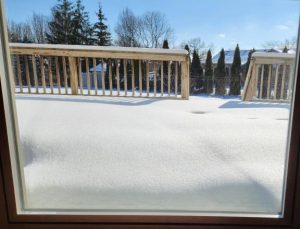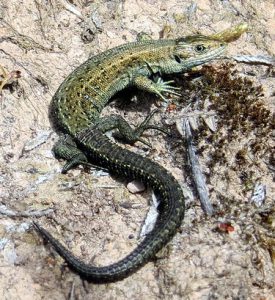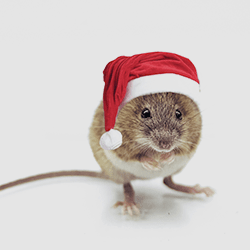This week has been cold and snowy here in Ohio. A few days ago, I took a photo of the snow on my deck piled against the patio door, which left me wishing to be somewhere warmer.
That got me thinking about my younger selves in the make-believe village of Channelwood, who appeared more regularly in this blog a few years ago but have been somewhat neglected since then. I visited them for a pretend spring break in 2021, when of course nobody got a real one because of the pandemic. This year, my husband and I have travel plans for Sarasota in mid-February; but that is still a month from now, which seems very far away when there is snow on the ground every day.
Looking at the photo, I heard wings beating in my imagination. A greenish-gray dragon landed on my deck with a thump, tucking his wings and curling his tail to fit inside the railing. On his back was my five-year-old Peter Pan alter ego, wearing a green jacket with matching pants and boots. Steam billowed up around the dragon as his warmth melted some of the snow. Peter beckoned for me to come outside, and I pictured myself in suitable winter gear stepping into the image.
“I’ve just come from Neverland,” Peter informed me, “and this is my good friend, the Never Dragon. You’ve met him once before—in Channelwood, when he was a baby. He says he wants to go back there for a visit, so I thought we could all fly to Channelwood together.”
The dragon didn’t have a saddle, but I decided that I certainly ought to be able to avoid falling off, since this was my own daydream. I climbed up behind Peter, and the dragon lifted into the sky, heading east.
After we’d been flying steadily for a while, we got into some clouds, which felt cold and clammy. My glasses fogged over, and I wasn’t sure how much time had passed before the dragon went into a gentle glide. We came out of the clouds just above Channelwood’s beach. The air felt much warmer here—wonderfully springlike—as we landed softly in the sand.
I slid down from the dragon’s back and just stood there for a moment, enjoying the sound of the waves and the scent of the sea. The sky was clearing, and the warm sunlight on my face was delightful. I felt as if I could stand here all day.
Peter took three small red apples from his pockets and gave one to me. He bit into another and held out the third apple to the dragon, who devoured it in one gulp. Apple-scented steam rose from the dragon’s nostrils, and after I’d taken a few bites of my apple, the dragon was happy to eat the core.
“Now that we’ve had lunch,” Peter said cheerfully, “what adventures shall we go on today? How about looking for pirate ships to chase away from the coast? Or maybe there’s a sea monster in the bay or a wicked witch in the woods.”
A wave reached higher with the incoming tide, gently rolling almost to my feet, which were still in their winter boots. Starting to feel hot, I unzipped my coat. I noticed a pretty pink shell not far to my left.
“Can’t we just take off our boots and go for a barefoot walk along the beach, picking up shells and enjoying the lovely weather?” I suggested.
Peter looked disgusted by the very idea. “Grown-ups are always so boring! No sense of adventure at all. Tinker Bell, send her home!”
I heard a soft fluttering and the chiming of small bells behind my head. Before I could turn around or do anything, a sparkly shower of fairy dust came down around me. The beach scene faded away, and I found myself back in my kitchen next to the patio door.
By now, the temperature had climbed above freezing, a light rain had started to fall, and some of the snow on my deck had melted. I imagined that if I looked closely enough, I could just see the long, sinuous outline of the dragon in what remained of the snow.










